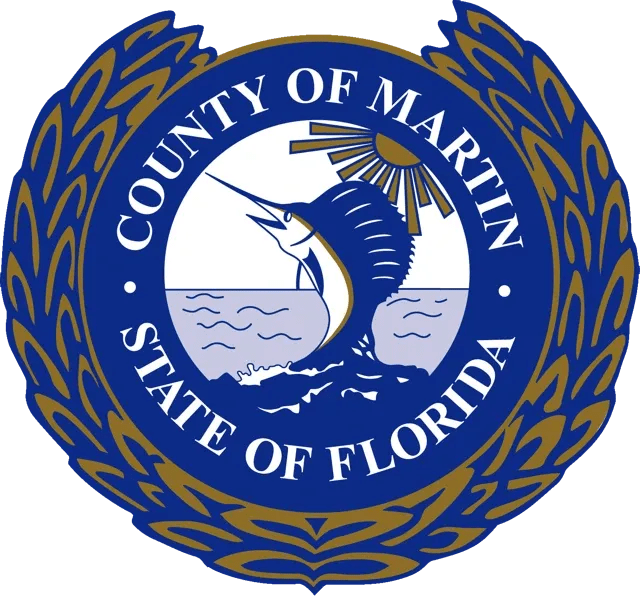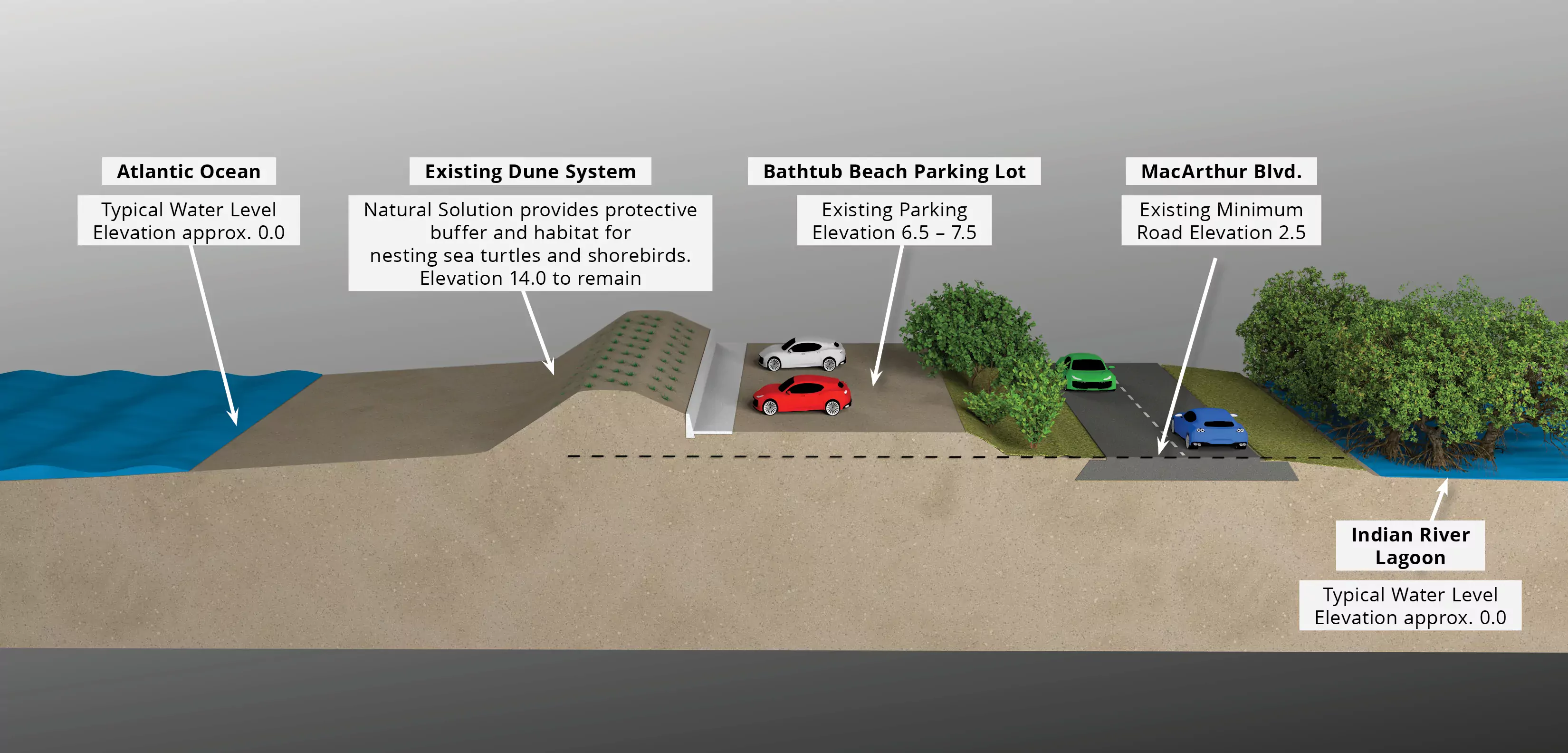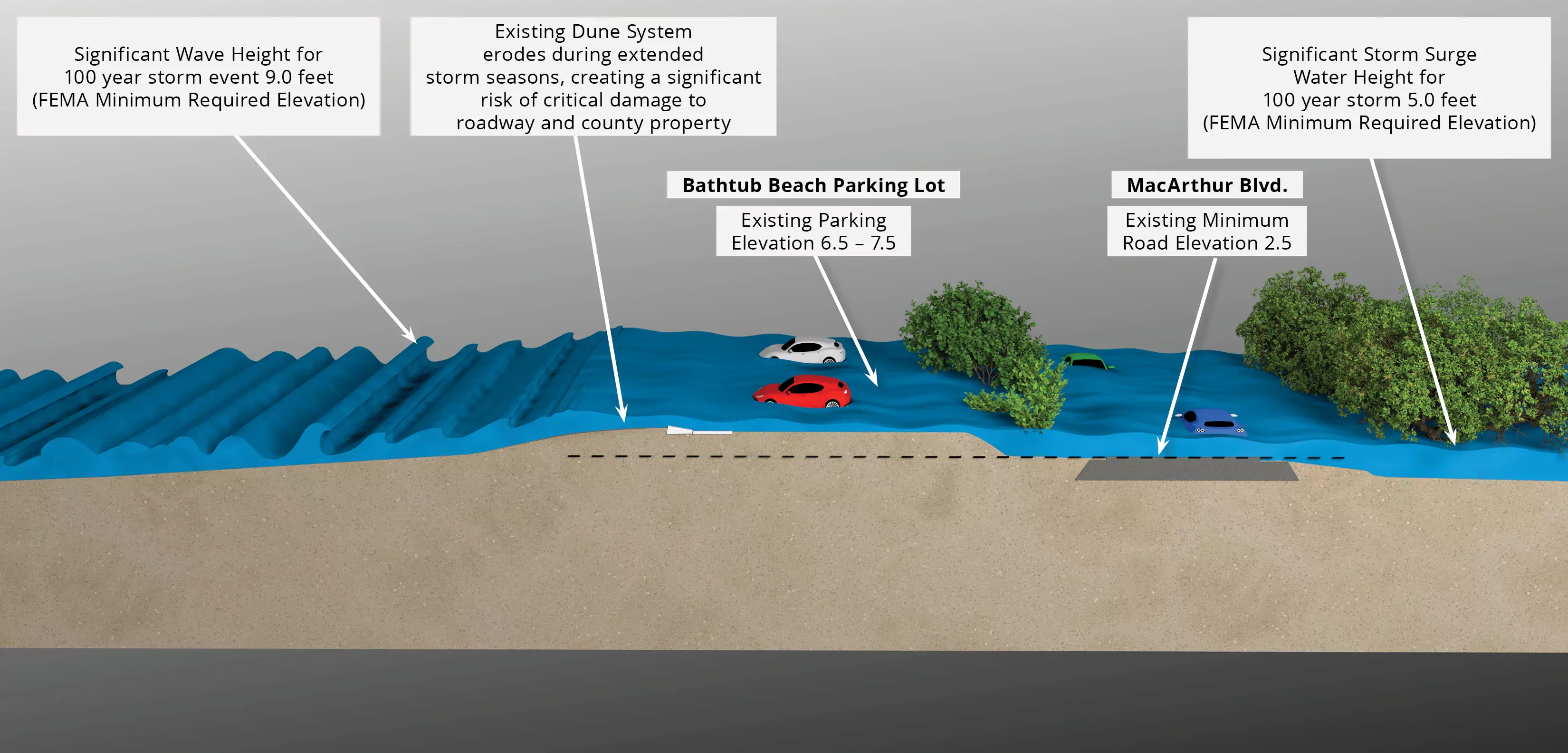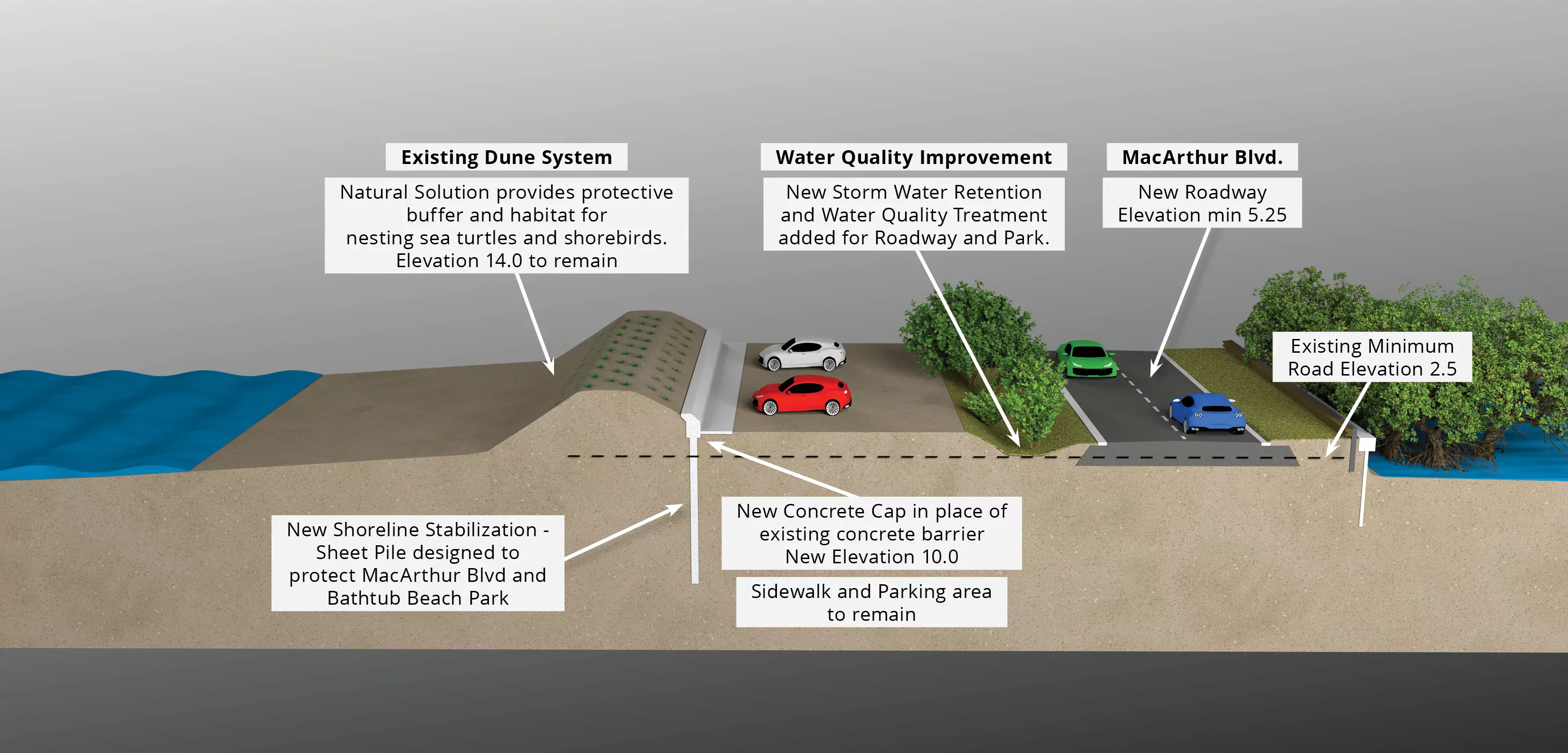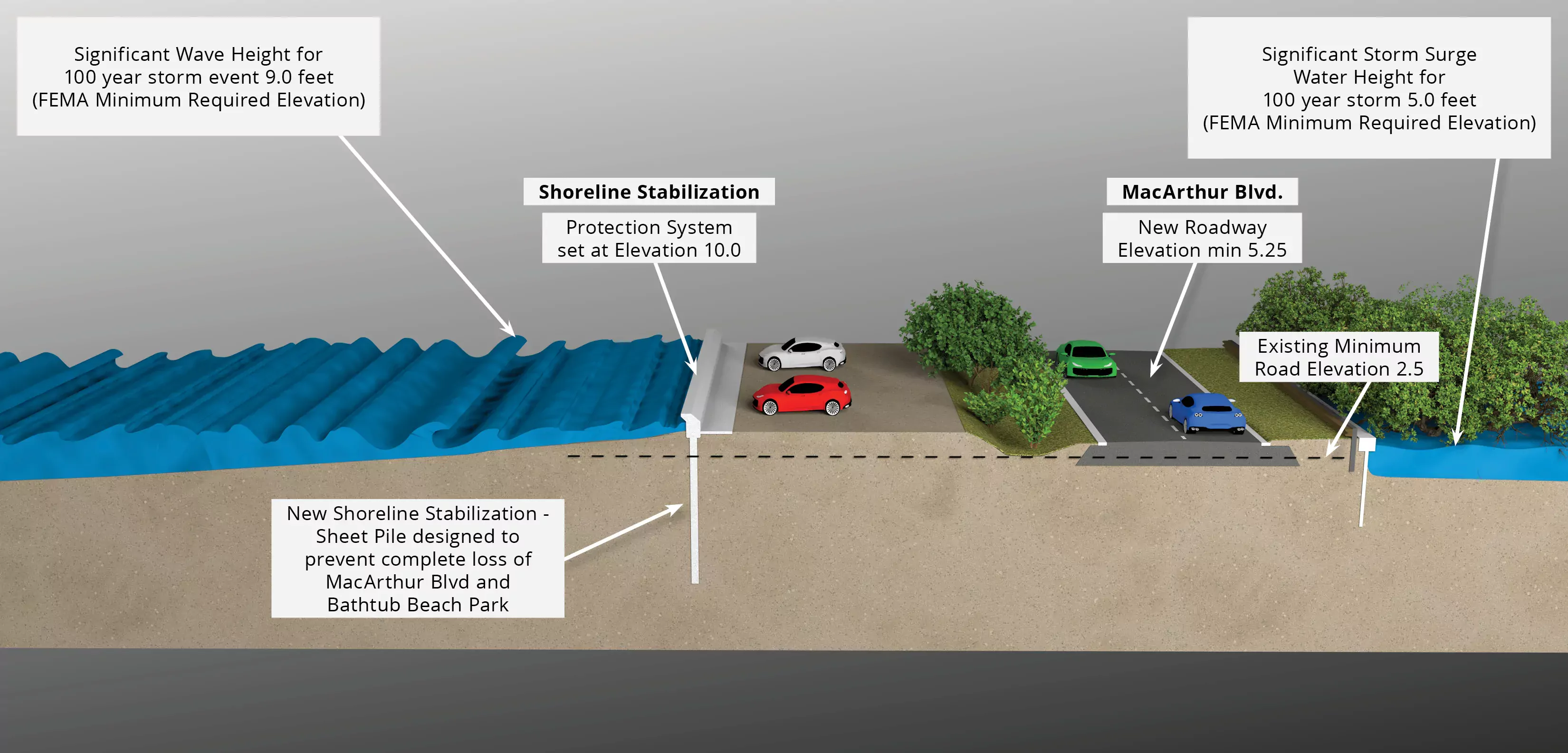How It Works
The project targets the weak points of the road near Bathtub Reef Beach and “hardens” it in two phases: shoreline stabilization and roadway elevation. Simply put, here’s what’s going to happen:
Phase 1: Shoreline Stabilization
Build a barrier underneath the dunes just east of the parking lot of Bathtub Reef Beach to defend them during significant wave action. Essentially, a seawall will be constructed and buried under the dune line. This seawall will hold the line when storms have removed the sand from the beach and dune, keeping water and sand from overwhelming the beach parking lot, flooding MacArthur Boulevard, and damaging utilities that serve the area.
Unlike a typical seawall, however, this barrier will not be visible to beach-goers under normal conditions. It will help to protect the public beach parking lot, roadway and utilities, but won’t be seen from either the beach or the road except when major storms have eroded the entire beach and dune. Normal beach restoration will take place, as happens now, during periods of calm weather outside of turtle nesting season.
Phase 2: Roadway Elevation
The project will raise the roadbed in this vulnerable section of MacArthur Boulevard – between Bathtub Beach and Sailfish Point – to prevent its loss due to storms. This 1,100-foot section of roadway along MacArthur Boulevard has a current elevation of 2.5 feet, is vulnerable to flooding, and doesn’t meet FEMA's minimal elevation guidelines.
Through this project, the roadway will gradually be raised with successive layers of paving material (macadam), until it is 5.25 feet above sea level. The sidewalk and parking lot will remain, and new Stormwater Quality Retention ponds will be created for stormwater treatment.
